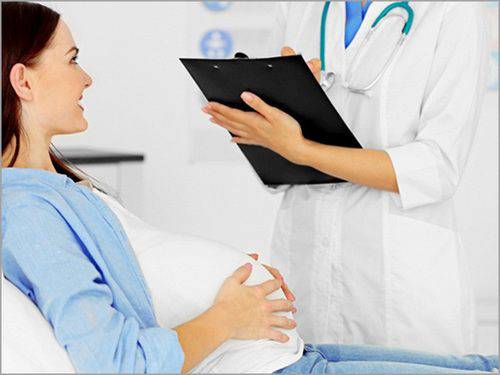+918048036613

This is your website preview.
Currently it only shows your basic business info. Start adding relevant business details such as description, images and products or services to gain your customers attention by using Boost 360 android app / iOS App / web portal.
Description
gynecologist specializes in caring for the reproductive health of a woman from the time she gets her first period all the way to post-menopause. Any conditions that affect the reproductive system, such as those with the cervix, uterus, ovaries, fallopian tubes, or vagina, are diagnosed and treated by a gynecologist.  Gynecological diseases encompass a wide array of conditions affecting the female reproductive system. Common issues include menstrual disorders (like irregular or heavy periods), endometriosis, uterine fibroids, pelvic inflammatory disease (PID), polycystic ovary syndrome (PCOS), and sexually transmitted infections (STIs). Other conditions include cervical dysplasia, urinary incontinence, and various cancers of the reproductive organs. Common Gynecological Conditions: Menstrual Disorders: Irregular, heavy, or painful periods are frequently experienced by women. Endometriosis: This condition involves the uterine lining tissue growing outside the uterus, causing pain and potential fertility issues. Uterine Fibroids: These noncancerous growths in the uterus can lead to heavy bleeding and pelvic pain. Pelvic Inflammatory Disease (PID): An infection of the reproductive organs, often caused by untreated STIs. Polycystic Ovary Syndrome (PCOS): A hormonal disorder characterized by irregular periods, cysts on the ovaries, and potential fertility problems. Sexually Transmitted Infections (STIs): Infections like chlamydia, gonorrhea, and HPV can impact reproductive health. Cervical Dysplasia: Abnormal cell changes in the cervix, which can be a precursor to cervical cancer. Urinary Incontinence: Weakening of pelvic floor muscles leading to involuntary urine leakage. Ovarian Cysts: Fluid-filled sacs that can develop on the ovaries, often asymptomatic. Vaginal Infections: Including yeast infections (candidiasis) and bacterial vaginosis. Cancer: Cancers of the cervix, ovaries, uterus, and other reproductive organs are also gynecological conditions. Pelvic Floor Prolapse: When pelvic organs (like the bladder or uterus) descend from their normal position. Symptoms of Gynecological Problems: Abnormal vaginal bleeding (heavy, prolonged, or spotting between periods) Pelvic pain or cramping Painful intercourse (dyspareunia) Changes in vaginal discharge (color, odor, consistency) Itching or burning in the genital area Pain or pressure in the lower abdomen Urinary or fecal incontinence Infertility or difficulty conceiving Menstrual irregularities (infrequent, missed, or prolonged periods) Changes in hair growth, skin, or weight (especially with PCOS) Fatigue *CERVICAL CANCER VACCINE:(HPV vaccine) The HPV vaccine protects against certain strains of human papillomavirus (HPV), which can cause various cancers and genital warts. It works by prompting the immune system to develop antibodies against HPV, helping to prevent infection and subsequent disease. The vaccine is most effective when administered before potential exposure to HPV through sexual activity, ideally during adolescence. Menopause: Menopause describes the stage of a woman's life when her menstrual periods stop permanently, and she can no longer get pregnant. Menopause is not a disease or disorder — it is a normal part of aging for women. The time leading up to menopause is called the menopausal transition or perimenopause. Menopause describes the stage of a woman's life when her menstrual periods stop permanently, and she can no longer get pregnant. Menopause is not a disease or disorder — it is a normal part of aging for women. The time leading up to menopause is called the menopausal transition or perimenopause What Is Menopause? Menopause is when periods stop for good. It's diagnosed after 12 months without a menstrual period, vaginal bleeding or spotting. Bleeding after menopause Diagnosis and treatment Menopause hormone therapy Vaginal dryness after... People also ask What is the best treatment for menopause? Hormone replacement therapy (HRT) HRT is a safe and effective treatment for most going through menopause and perimenopause. Your GP will discuss any risks with you. HRT involves using oestrogen to replace your body's own levels around the time of the menopause. The primary cause of menopause is the natural decline of ovarian function and the subsequent decrease in estrogen and progesterone production. This process is a normal part of aging for women, typically occurring between the ages of 45 and 55. Other factors, such as surgery (like oophorectomy, removal of the ovaries) or medical treatments (like chemotherapy), can also induce menopause by directly impacting hormone levels. Here's a more detailed breakdown: Natural Decline: As women age, the number of ovarian follicles (structures containing eggs) decreases, and the ovaries become less responsive to FSH (follicle-stimulating hormone). This leads to a reduction in the production of estrogen and progesterone, which are the hormones that regulate the menstrual cycle. Surgical Menopause: Surgical removal of both ovaries (oophorectomy) leads to an abrupt cessation of estrogen and progesterone production, resulting in immediate menopause. Medical Treatments: Certain medical treatments, such as chemotherapy or hormone therapy for breast cancer, can also induce menopause by interfering with ovarian function or hormone production. Other Factors: While less common, certain conditions (like HIV-AIDS), chronic illnesses, and some medications can also contribute to menopause.


